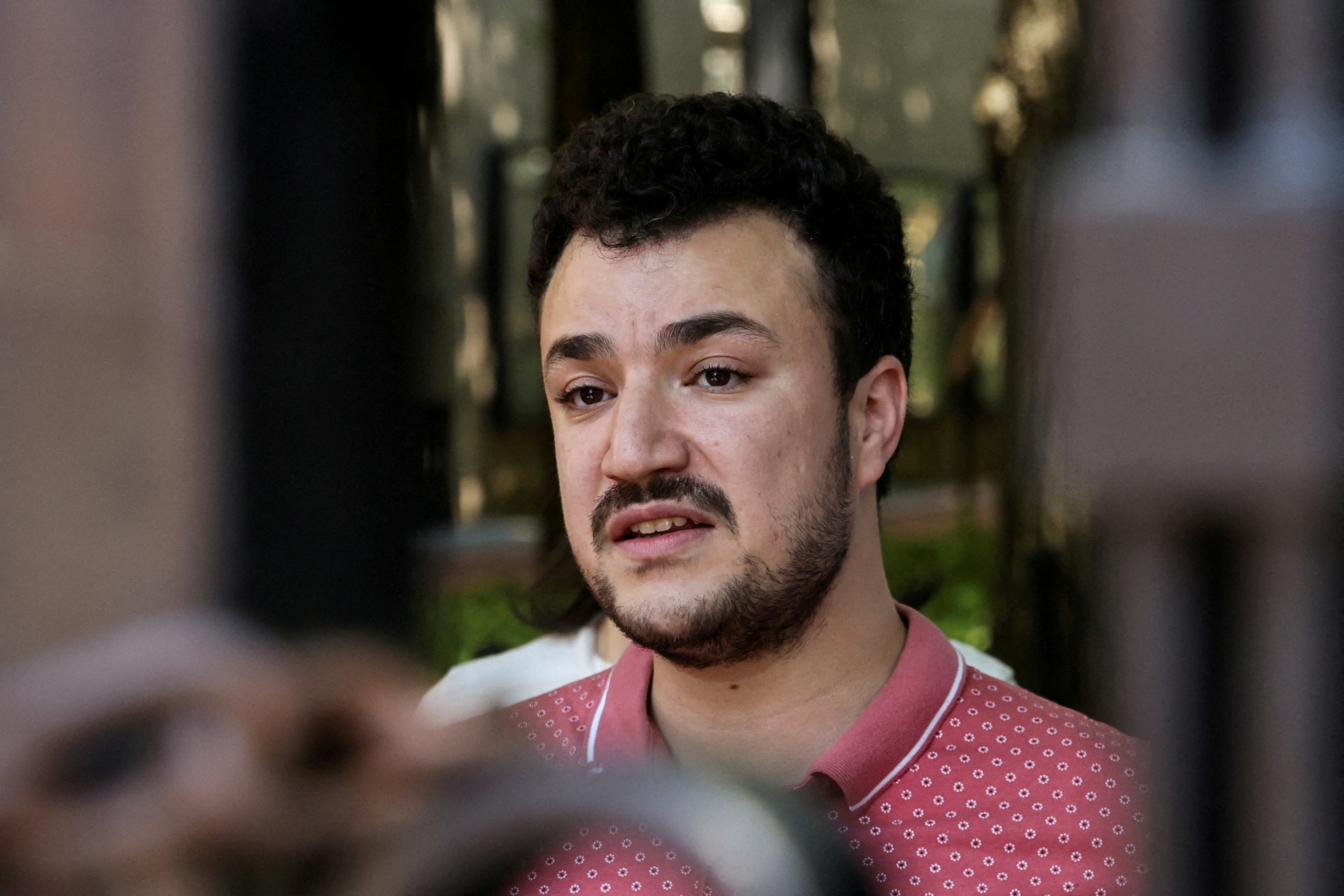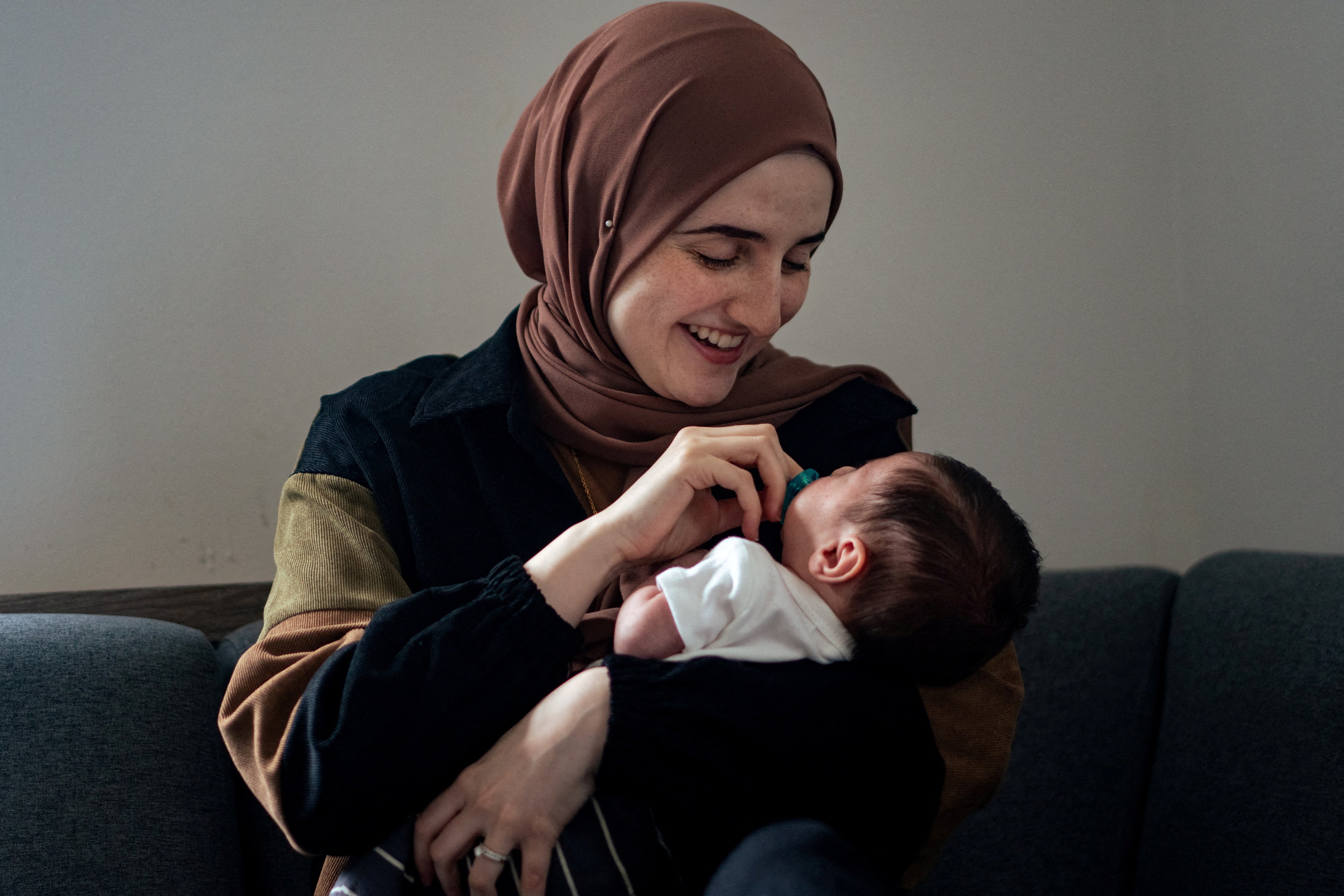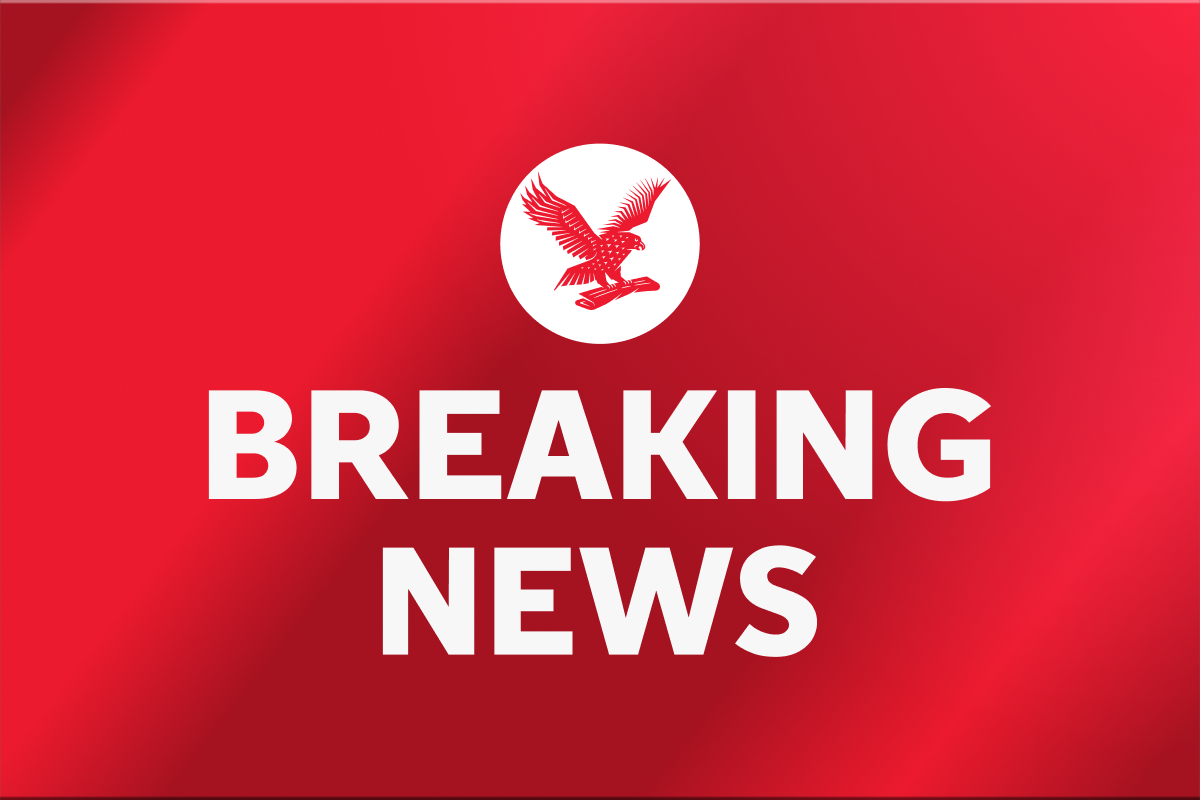The Columbia University student-activist at the center of a legal battle with Donald Trump’s administration has filed dozens of pieces of evidence and statements outlining the “irreparable harm” he faces in an immigration detention center in Louisiana.
Mahmoud Khalil — who was arrested by federal agents nearly three months ago for his role leading pro-Palestinian demonstrations on campus — also submitted a declaration of his own, writing of the “visceral” pain he experienced missing the birth of his son.
“Instead of holding my wife’s hand in the delivery room, I was crouched on a detention center floor, whispering through a crackling phone line as she labored alone,” Khalil wrote. “I listened to her pain, trying to comfort her while 70 other men slept around me. When I heard my son’s first cries, I buried my face in my arms so no one would see me weep.”
The massive tranche of filings unsealed on Thursday also include statements from Khalil’s wife, his fellow Columbia students and professors, a former State Department official condemning his “arbitrary” detention, and experts outlining the chilling effect of his arrest and Islamophobic reactions surrounding his case.
Khalil’s arrest has sparked protests across the country and fears the Trump administration is crushing political dissent by targeting demonstrations against Israel’s devastating campaign in Gaza. Secretary of State Marco Rubio has said he “proudly” revoked hundreds of student visas over campus activism, leading to several high-profile arrests of international scholars.

Khalil, who is Palestinian, grew up in a refugee camp in Syria. He entered the United States on a student visa in 2022 to pursue a master’s degree in public administration, which he completed last year. He missed his graduation ceremony last month.
“As someone who fled persecution in Syria for my political beliefs, for who I am, I never imagined myself to be in immigration detention, here in the United States,” Khalil wrote in his declaration.
Lawyers for Khalil argue he suffers “irreparable harm from his arrest and detention” — including First Amendment violations, his separation from his wife and child, and “psychological harm specific to his arrest and detention.”
They also accuse the Trump administration of damaging Khalil’s reputation “by baselessly identifying him as a risk to the foreign policy of the United States, marking him and his family as targets for harassment and notoriety and severely undermining his ability to pursue a career in international diplomacy and human rights advocacy.”
Khalil wrote that he was subject to “dignitary and reputational harm, personal and familial hardship, including constant fear for personal safety, continued detention, restrictions on my freedom of expression, and severe damage to my professional future.”
Statements from the Trump administration amounted to “attacks” against him, amplified across social media and into the lives of his family, he said.
“These were not just attacks on my character,” he added. “They were efforts to erase my humanity.”
His wife Noor Abdalla described the moment Khalil met his newborn son through a plate glass window inside a detention center — one month after he was born.
“It was an awful feeling for all of us,” she wrote. “Mahmoud was right there, but he could not touch his son.”

The filings follow a federal judge’s ruling that the Trump administration’s attempt to deport Khalil on foreign policy grounds is likely unconstitutional.
New Jersey District Judge Michael Farbiarz has asked for additional information before ruling on his release from detention.
The administration has accused Khalil of “antisemitic activities” and of supporting Hamas, which he has flatly rejected. He has not been charged with any crime, but officials claim Khalil can be removed over what Rubio has characterized as “adverse foreign policy consequences.”
Khalil also is seeking an order to block Rubio from relying on an obscure immigration law to similarly deport other activists.
There are no further hearings scheduled in his parallel immigration court proceedings in Louisiana. The judge in that case has determined Khalil can be deported.




